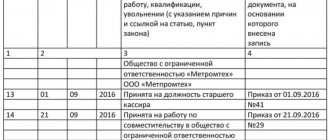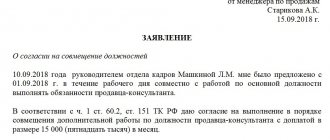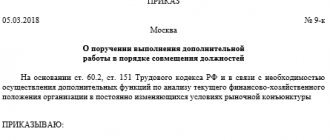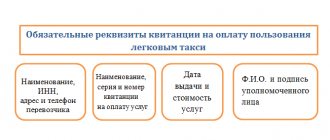Since July 1, 2016, issues of regulation of professional standards are regulated by the provisions of Article 195.3 of the Labor Code of the Russian Federation. Until now, many organizations and individual entrepreneurs do not know how to work with them. When do they make it necessary to rewrite internal personnel documentation? Do staffing schedules and job descriptions need to be adjusted? What to do if it turns out that the education of employees does not meet accepted standards? Is it necessary to retrain employees and send them to advanced training courses? And, most importantly, who controls all this? Unions? Labor inspectorates? Let's figure it out.
Why are professional standards needed?
A professional standard is the name of an important fundamental document that contains a description of the following standards:
- Labor functions of the employee in accordance with his qualifications and position.
- Requirements for his experience and knowledge.
Thus, we can say that professional standards include a description of the qualitative level of qualifications of an employee, which he must meet in order to rightfully take his place on the staff of any company, regardless of the type of its activity (Article 195.1 of the Labor Code of the Russian Federation).
Download “Professional Accountant Standard”.
All professional standards are approximately the same and have a single structure (according to the order of the Ministry of Labor of Russia dated April 12, 2013 No. 147n “On approval of the Layout of the Professional Standard”).
Unlike specialized reference books on qualifications, professional standards give a clearer idea of the work functions of workers, which have absolutely accurate and detailed descriptions. Perhaps, over time, professional standards will completely replace qualification reference books as documentation that is more in line with the requirements of the current time.
Also see “Independent assessment of employee qualifications: what you need to know.”
Where can you find approved professional standards?
In accordance with Decree of the Government of the Russian Federation dated January 22, 2013 No. 23, the Ministry of Labor and Social Protection of the Russian Federation develops and approves relevant professional standards (taking into account the opinion of the tripartite commission for regulating social and labor relations).
Accordingly, the official website of the Ministry of Labor contains an exhaustive list of currently developed and approved professional standards. Officials update the register of professional standards monthly.
Professional standards and their scope of use
These standards may be applied and taken into account for the following purposes:
- to organize training and certification of employees;
- policy formation when staffing an enterprise with highly qualified personnel;
- organization of management processes;
- establishing internal tariffs for work performed;
- facilitating the classification of tariff categories;
- developing your own systems for paying working hours, taking into account the specifics of work at a particular enterprise.
Are professional standards mandatory for implementation or are they only intended to facilitate the organization of an enterprise and production? Should the employer (company owner) follow them unquestioningly, taking them as step-by-step instructions? Or does he have the right to choose the area and order of their application? Let's try to figure out these questions.
How to introduce professional standards into work
The legislation, in principle, says nothing about how exactly employers should implement professional standards. In this regard, in our opinion, employers (organizations or individual entrepreneurs) have the right to independently determine the procedure for introducing professional standards into their work. So, for example, an organization or individual entrepreneur can, for starters, create a working group that will simply check whether employees comply with approved professional standards. Such a check will become one of the stages in the implementation of professional standards. Based on its results, the employer will at least understand which of the employees meets the approved professional standards and who does not.
Mandatory application of standards
Paragraph three of part 2 of Article 57 of the Labor Code of the Russian Federation talks about the mandatory nature of professional standards. In particular, this provision mentions such an important document as an employment contract. Thus, if the receipt by an employee of an enterprise of special benefits, compensation or restrictions is directly related to the performance of duties inherent in a particular position, then the employer is obliged to be guided by reference books on qualifications or state professional standards.
EXAMPLE
Citizen "P" by nature of service is involved in particularly harmful and difficult work. A benefit and compensation for citizens engaged in such activities is early retirement. This means that after leaving for a well-deserved rest, an employee can count on receiving the benefits due to him, his position must be spelled out in the employment contract exactly as it is listed in the directory or professional standard. At the slightest discrepancy, the employee risks losing his legal privileges.
Therefore, it is very important to take such nuances into account and correctly draw up and fill out all the necessary documentation. If a mistake is made and this comes to light (for example, at the request of the employee himself or as a result of an ongoing audit of the enterprise), then the company’s management may be held accountable.
The Administrative Code in the 4th part of Article 5.27 provides for punishment for such criminal negligence - a large fine. Its size may vary:
- from 50 to 100,000 rubles – for an organization;
- from 10 to 20,000 – for officials;
- from 5 to 10,000 – for private entrepreneurs.
Which, however, does not relieve the former or current employee from subsequent problems with receiving all the benefits and compensation due to him for the past period.
In what cases is the professional standard only recommended?
The professional standard of a labor protection specialist is mandatory for application in terms of qualification requirements. In all other cases, it is of a recommended nature, including for the title of the position of an employee performing the duties of a labor protection specialist.
Article 57 of the Labor Code of the Russian Federation states that the employer must indicate in the staffing table the position as it is specified in the professional standard, only in one case - if this position is related to the provision of compensation and benefits.
Since the specialty of a labor protection employee does not provide for a preferential pension or additional leave due to those working in particularly hazardous working conditions, the professional standard is advisory in nature for the title of the position. But the organization must have at least one labor protection specialist, as required by Article 217 of the Labor Code of the Russian Federation. The rest of the service employees can be named arbitrarily.
It is recommended to use the professional standard to develop a job description for a labor protection specialist. To do this, you can include responsibilities from the “Labor Actions” tables in the job description. There are several such tables in the professional standard; they are devoted to certain types of occupational safety and health activities - for example, responsibilities for conducting training, medical examination, special assessment of working conditions, functioning of the OSMS, etc.
Requirements for employees to comply with professional standards
Article 195.3 of the Labor Code of the Russian Federation regulates the use of professional standards by employers. It provides a brief but succinct definition of an employee’s qualifications. And it is explained that if the requirements for the qualifications of a worker are legally defined, then the application of the standards becomes the indisputable responsibility of the employer, and not his right.
To make it clearer, let’s look at this point using the example of the professional standard for accountants in 2022. So, in accordance with Part 4 of Article 7 of the Federal Law of December 6, 2011 No. 402-FZ “On Accounting,” the chief accountant who came to get a job (for example, in an OJSC or an insurance organization) must meet the following requirements:
- Higher education.
- Work experience in the specialty "Accounting" or "Audit" - at least 3 years out of the last five.
But is it necessary to present these requirements if an accountant gets a job in a regular LLC? What if the potential chief accountant does not have a higher education, but has valuable experience and a good track record? Let's look at the professional standard "Accountant". It follows from this that a person can be hired as an accountant with both higher and secondary education.
Therefore, we believe that higher education is mandatory for an accountant only if he plans to work in organizations included in the list given in Part 4 of Article 7 of Law No. 402-FZ (for example, in an OJSC). If not, then it will be enough to have secondary education and work experience, which are prescribed in the professional standard.
General provisions of professional standards for personnel specialists
The document in question provides a definition of the concept of “qualification level”. According to the professional standard, this is a generalized set of requirements for the level of education of an employee, for his knowledge, skills and abilities. The higher the level of qualification of an employee, the more complex and even more prestigious his functions and responsibilities.
Professional standards for personnel workers establish three levels of qualifications for employees:
- The fifth level of qualification involves independent performance of work to resolve various practical problems that require a qualitative analysis of the situation. A personnel officer with the fifth qualification level is required to deal with document flow for personnel records, as well as the hiring and dismissal of employees. Secondary vocational education required.
- A specialist with the sixth qualification level is engaged in determining the tasks of his own work or the work of his subordinates. He is involved in the administration of document flow, organizing employee certification, conducting work internships, bonuses, corporate policy, monitoring its implementation, etc. Higher and additional specialized education is required.
- The seventh level of qualification involves the identification of special strategies, as well as the development of innovative management activities. As a rule, this qualification level applies to managers and directors of human resources departments.
Thus, the main functions and categories of personnel officers are secured by the above professional standards. Various local acts written in accordance with the main document - such as job descriptions and staffing schedules - will also become mandatory for employees.
Improvement of employee qualifications
The employer has the right to send employees of his enterprise to retraining and advanced training courses. In accordance with Article 196 of the Labor Code, this is his right, but not his obligation. That is, he can make this decision at his own discretion, based on considerations of the feasibility of such training. Most often - to raise the company’s status in the market, its prestige and the qualifications of workers involved in work processes.
In serious and large companies, the employer and owner of the company are interested in a high level of training of employees. To verify and confirm it, international professional standards of internal auditing can be used.
Sections provided for by recommendations in professional standards
The standards used in the development of the PS are contained in the methodological recommendations approved by Order of the Ministry of Social Protection of the Russian Federation dated April 29, 2013 No. 170n. Based on the provisions of the order, the PS must include sections:
- General provisions on professional standards. Determines the type of economic activity in which the software is used. The section contains the tasks of the profession, purpose, description of activities;
- Characteristics of labor functions of professional activity. The description is carried out generally for the profession and separately for each of the possible levels;
- Description of generic functions. The section indicates the origin of the generalized function, a possible list of job titles in accordance with reference books, qualification requirements and other characteristics;
- Information about the developer of the professional standard. It is the developer's responsibility to ensure that the project is discussed in the media.
The design of the PS is strictly regulated in terms of design. Instructions are contained in the methodological recommendations.
Controversial point: is it necessary to study?
There are still disputes and different opinions regarding the above provisions. Some experts refer to Article 195.3 of the Labor Code (its first part), others to the same article in its second part, finding in them some discrepancies and inaccuracies that allow for a double interpretation of their meaning.
As a result, some believe that it is mandatory to apply professional standards, while others believe that they are only advisory in nature. However, both of them agree that if mandatory requirements for the qualifications of employees in a certain specialty are not established by law, then they can only be advisory in nature for the employer and nothing more. Moreover, the latter has the right to use them at his own discretion, setting more stringent or, conversely, softer requirements for employees than required by the standard.
The workers themselves also react ambiguously to professional standards. Many of them express fears that the education they received at various courses will be only formal in nature. And this was invented by legislators for only one purpose – to once again empty their wallets. After all, at the moment there is no clear definition in the law of who will pay for all this.
How to read the professional standard: the beginning
So, how to read the professional standard. The name comes first, followed by the registration number. If it is not there, the document has not yet been approved, it is a draft and its use is not yet recommended. Next, you need to look not at the scope of application, codes of economic activity, but at Part II - description of labor functions. If at least one of the job functions suits your employee, feel free to read further this PS. But pay attention to the level of qualification - it can be seen in the same table. Your employee can perform work, for example, at the managerial level (7-8), and the title of his position corresponds to a lower level (5-6) and the salary is appropriate.
If such a situation arises, there are two options: either reduce the employee’s responsibilities, or rename his position and raise wages. In any case, you will have to change your documents.
An example of using professional standards for advisory purposes
Let us assume that the current legislation does not impose strict requirements for the qualifications of specialists in certain professions. Let, in our case, for clarity, it be “HR Specialist”. Therefore, the professional standards for personnel officers approved for 2020 can be applied to this position. But use them only by taking them as a basis to facilitate the preparation of documentation.
For example, taking the professional standard as a certain template, you can:
- correctly identify job titles;
- functions related to the execution of the workflow;
- set reasonable requirements for their qualifications, experience, and education.
That is, this document, in fact, acts as a foundation that allows the employer to find support points when building natural work processes in a team.
For whom are professional standards required?
Above, we discussed the three most common professional standards in the workplace: teacher, personnel officer and accountant. In total, there are about two thousand such documents, and their number is constantly growing. You can create a small classification to illustrate for whom professional standards and their requirements are mandatory. Currently, the following areas require the application of legal standards:
- education;
- healthcare;
- culture;
- social services;
- finance;
- jurisprudence;
- office activities;
- construction;
- Agriculture;
- MASS MEDIA;
- transport;
- electronics and electrical engineering;
- food industry;
- chemical, metallurgical, nuclear and space industries;
- shipbuilding, aircraft manufacturing and automotive manufacturing;
- sphere class=”aligncenter” width=”626″ height=”417″[/img]
In each of the listed areas there are hundreds of professional standards. For example, in the healthcare sector, separate documents regulate the areas of pediatrics, dentistry, psychiatry, etc. Each standard contains a brief description of the specialist’s activities, qualification levels and corresponding responsibilities are given. Anyone can find the necessary professional standard in the official register of the Ministry of Labor.
Questions of application of Art. 195.3 Labor Code of the Russian Federation
All discrepancies and interpretations of Article 195.3 of the Labor Code of the Russian Federation are associated with its relative novelty. A lot of questions arise regarding the scope of its application. Moreover, it is still not installed:
- a unified method for introducing professional standards into enterprises (plan, etc.);
- a measure of responsibility for the employer and employees who have been working in their companies for a long time, if the latter are not currently able to meet professional standards.
And it is not at all clear what to do with new potential employees who are just planning to come to work for the enterprise. The labor market is now crowded, but not everything is so simple. This does not mean at all that there is no shortage of valuable personnel. It is not always the case that a new employee with a higher education is able to replace an old one who has only a secondary vocational education behind him, but has enormous experience.
Officials of the Russian Ministry of Labor constantly receive various questions regarding the application of professional standards. Here are some questions and answers to them.
Strict adherence to professional standards
Question: Is there a need to strictly follow the requirements of approved professional standards?
Answer: Yes. The employer must keep in mind that he is obliged to strictly follow the requirements when hiring a person if we are talking about issues regulated by Articles 57 part 2 and 195.3 of the Labor Code of the Russian Federation. In other cases, all requirements are purely advisory in nature.
Mandatory professional standards in private organizations
Question: Is compliance with professional standards mandatory for private organizations? Or are they designed to streamline the work of state and municipal companies and enterprises?
Answer: Yes, definitely. The law is the same for everyone, regardless of the form of ownership and status of the enterprise and its owner.
Differences in the professional standard and qualification reference book
Question: What should you do if different requirements are specified for the same profession in the qualifications directory and in the professional standard? Which of these two documents should be used in such cases?
Answer: The right to choose in this case belongs to the employer.
Dismissal of employees
Question: Is it possible to fire an employee if it suddenly turns out that he does not meet the requirements of the professional standard? For example, does he not have a higher education and the necessary work experience, which have become mandatory under the new rules?
Answer: No, the introduction of new professional standards cannot be grounds for dismissal of previously hired employees. Employees can be dismissed only based on the results of the certification process.
Changes in job responsibilities
Question: Should workers' responsibilities automatically change with the introduction of a new occupational standard?
Answer: No, there is no automatic change in responsibilities in this case.
Changes in employment contracts
Question: Does the law oblige employers to begin rewriting employment contracts and job descriptions for their employees once the new standards come into force?
Answer: Yes, but only if the requirements of professional standards are mandatory applicable to a specific position.
Tuition payment
Question: Who should pay for advanced training and retraining courses for employees if required by the employer?
Answer: The law cannot clearly answer this question. It is necessary to decide based on the content of other internal legal documents. Raise the employment contract, various agreements, collective agreements. The employer does not have a direct obligation to pay for the professional education of employees.
Transfer to a higher position
Question: Does the employer have the right to appoint to a position a person who, according to the terms of the professional standard, does not meet it?
Answer: The employer has the right to do this. In particular, the employer can create a certification commission. She may decide that the person recommended has sufficient experience, is responsible in carrying out his duties and is fully capable of performing them. And then the employee can be transferred to a higher position.
Labor functions of a labor protection specialist
A. Ensuring the functioning of the occupational safety management system in the organization
- Regulatory provision of safe conditions and labor protection.
- Organization of training of workers in the field of labor protection.
- Collection, processing and transmission of information on issues of labor conditions and safety.
- Organization and implementation of activities aimed at reducing levels of professional risks.
- Assistance in ensuring the functioning of the occupational safety management system.
- Ensuring control over the state of conditions and labor protection in the workplace.
- Ensuring investigation and recording of industrial accidents and occupational diseases.
B. Planning, development and improvement of the occupational safety management system and occupational risk assessment
- Determining the goals and objectives of the labor protection and occupational risk management system.
- Preparation of proposals for the distribution of powers, responsibilities, responsibilities on issues of occupational safety management, assessment of professional risks and justification of resource provision.
C. Examination of the effectiveness of measures aimed at ensuring the functioning of the occupational safety management system
- Analysis of measures aimed at improving working conditions and safety, reducing occupational risks, preventing industrial accidents and occupational diseases.
- Consulting employers and employees on issues of ensuring safe working conditions in the workplace and assessing occupational risks.
- Assessing the effectiveness of training procedures for workers on labor protection.
D. Strategic management of professional risks in the organization
- Methodological support for strategic management of professional risks in an organization.
- Coordination of work on the implementation of an occupational risk management system in the organization.
- Control of work on the implementation of an occupational risk management system in the organization.
- Control and monitoring of the effectiveness of the implementation of the professional risk management system in the organization.
All of the above-mentioned labor functions of an occupational safety specialist have an additional layout, so if you do not understand, for example, the essence of the function “Regulatory provision of safe conditions and labor protection” or “Methodological support of strategic management of occupational risks in an organization,” open the professional standard and see what It is precisely the actions that a specialist must perform and what necessary skills and knowledge he should have.
Responsibility for ignoring the requirements of professional standards
Approved professional standards are very important in the social sphere. Responsibility for their failure to comply is provided for in cases where they are mandatory. Or if they are not mandatory, but the employer voluntarily accepted the obligation to follow their requirements. For example, by reflecting this decision in the company’s local regulations.
If an employer is obliged to comply with professional standards, but does not do so, then he may be held accountable on the basis of Article 5.27 of the Code of Administrative Offenses of the Russian Federation. Labor inspectorates will hold employers accountable.
Also see video on the topic of professional standards
Determining your PS
To determine which professional standard is suitable for a particular position, you will have to read them all - or at least those closest in meaning. The point is that you will have to look specifically for the labor functions of a particular person - if you have a legal adviser, but there is no professional standard with that name, this does not mean that in terms of labor functions none of the PSs correspond to your employee. For example, there is a PS “Financial Monitoring Specialist” and several other documents that contain a description of the work that a legal adviser can perform. And then his position will be called - see PS - “economist”. But if your employee’s job functions include, for example, procurement and contracts, then you should certify him for compliance with the PS “procurement specialist” and rename the job title.
It’s not all bad; after all, you won’t have to read the entire volume of professional standards. The entire array of regulatory documents is divided by industry. There are 40 of them in total and some - for example, the “nuclear industry” - are no longer suitable for an organization working in the field of food trade. Therefore, some industries can be safely skipped. The register of professional standards can be found on the website https://profstandart.rosmintrud.ru/, as well as https://classinform.ru/profstandarty.html. The second service is more convenient - professional standards are easier to open and download, and the array is immediately divided by industry.







